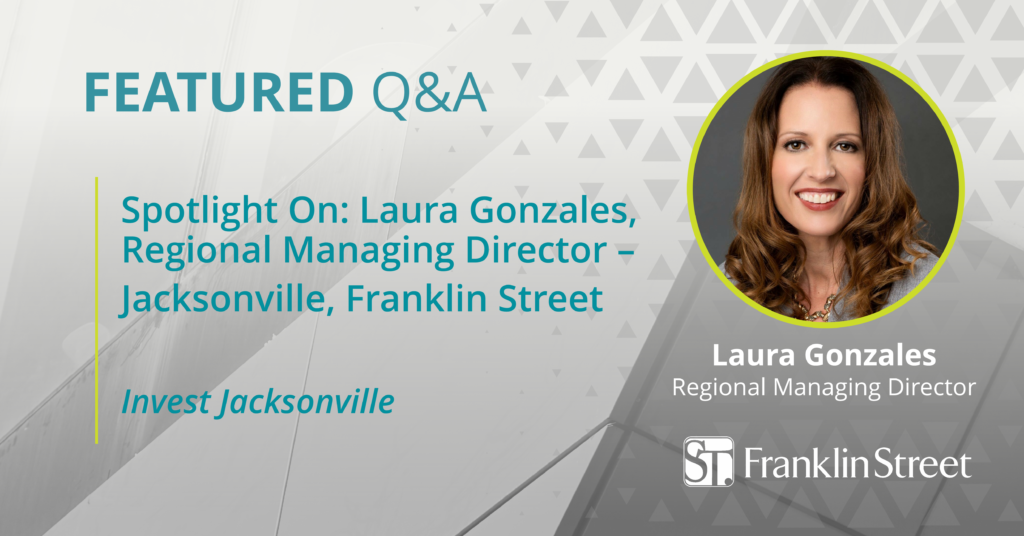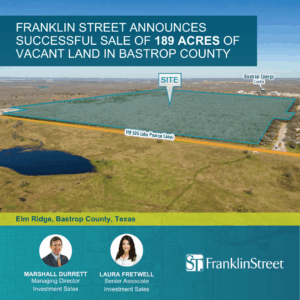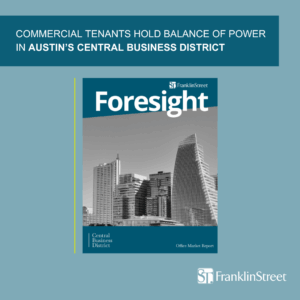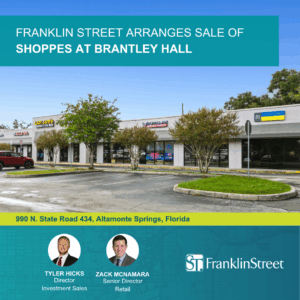In an interview with Invest, Laura Gonzales, regional managing director of full-service commercial real estate firm Franklin Street in Jacksonville, talked about the rapid growth visible throughout the state and the opportunities arising in response to new residents and businesses coming to the area. She also discussed her outlook for her industry in a post-pandemic economy.
How has Franklin Street performed in the past year?
We’ve been able to provide advice and guidance to our clients throughout the past year, given the pandemic. We made sure to keep up with client needs and provide short-term and long-term solutions. All the businesses were going through their PPP loan programs and my background in banking allowed me to help them specifically and to walk them through various processes. Florida picked up and re-opened faster than most of the country, so we had clients that were ready to proceed with their projects and transactions and we were fortunate to find lenders and equity partners to get development projects to close. We experienced that kind of success in many of our offices.
Are you seeing any of your services experience a spike or decline in demand?
Commercial insurance is steady because it is something that everyone needs. Demand for some lines of our business took a dip early on in the pandemic, but everything from investment sales to leasing has now recovered for the most part. We’re seeing demand on both the buy and sell side of assets, with strong demand from people even outside of Florida, who are looking to invest in our area or even move here from high-density regions.
How do you expect the office and retail spaces to perform going forward?
From an office standpoint, it definitely depends on the type of business, as some were remote or partially remote even before the pandemic. However, the majority of businesses require in-person collaboration to succeed, so the companies have to adapt. We will still see hybrids combining in person and virtual work. People are starting to understand their space needs and, in many cases, the need for expansion for protection and social distancing. While I don’t think we’ll see many shrinking footprints in the office market, companies are putting more thought into how their offices are configured, so we will definitely see changes in set ups and utilization of space.
On the retail side, the pandemic has inspired a lot of creativity and innovation to best serve the consumer. We’re seeing restaurants implement drive-throughs that previously did not have them. We’ve also seen restaurants, and even retail stories, begin to offer more options for online ordering and contactless delivery and pick up, and I do not see those things going away even when the pandemic is no longer a concern.
What opportunities are arising from the influx of residents and businesses?
We’ve historically had large amounts of unclaimed land and are seeing people want products they can move into quickly. The biggest challenge is finding things that are ready to go. This requires speculative construction jobs so that spaces can be leased immediately. Another topic is housing. Homes are selling quickly. People have greater buying power as a result of coming to a place with lower prices than what they sold for in the Northeastern areas.
Is Florida’s seller’s market sustainable for the longer term?
Everything is cyclical, but we do not expect current market conditions to end anytime soon. Net migration trends were already showing an influx of people moving to Florida, and the pandemic only accelerated that. As long as people keep moving here, the demand will keep the momentum going.




